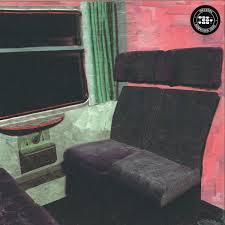Berlin’s love affair with electronic music, notably (but not exclusively) techno, is rather unique amongst urban party scenes. Obviously, electronic music is the backbone of most party nights the world over, but in a city where a techno club – Berghain – has almost become a cathedral, there has always been something more devoted and impassioned behind Berliners’ massed drive to shake their bodies and minds to minimal, repetitive beats and pulsating bass lines. Dubstep and glitch may have been given a cursory glance and the odd dabble in Germany’s capital, but nothing captures the locals more than techno and its addictive ability to keep revellers dancing and dancing for hours on end.
A few years ago, I was privileged to be invited to Brussels for an event organised by the Goethe Institut which featured Wolfgang Voigt and a raft of other electronic performers whose names (bar Damo Suzuki guesting with one act on vocals) I can’t recall, but who all hailed from across the border and gave distinct but equally funky takes on techno’s core essence. On visits to Berlin, I’ve been staggered at how the city’s inhabitants flock to clubs at all hours of the day (friends and I once got to Berghain at about 4pm on a Sunday and the place was packed), seemingly indefatigable in their search for more groove to shake and bounce to. Nick Höppner, as owner of the Berghain-affiliated Ostgut Ton label and a frequent resident DJ in the venue’s celebrated Panorama Bar, has been tapping into this craze for over a decade now, and on his debut album, Folk, clearly looks to distill some of that energy onto record.
As a title, Folk implies a coming together of people (the term’s origin is, after all, the German word volk) in a manner similar to the folk scenes of America in Britain in the sixties. Höppner establishes techno as a sort of common cultural vernacular for Berlin’s party animals, with this album as it’s guiding light and oral history. It’s unsurprising, therefore, that much of Folk will feel very familiar to electro aficionados. Höppner makes no attempt to reinvent the wheel in the way recent, more experimental artists have done, nor to create yet another sub-genre to rival dubstep, footwork or somesuch. This is techno as descended from disco and house: full of hooks and forward momentum, a warm and inviting sound that has one, simple aim: to get you moving on a dancefloor, or in your living room, or at the very least shaking your head on a night bus, indifferent to the world around you. Berlin’s "folk" is here represented as escapist, not overtly narrative as other musical styles, but instead something to draw the listener and his or her likeminded souls into a more physical form of communion. The melodies are circular and seductive despite their seductive nature, the beats insistent without being overwhelming, the details (a vocal line here, a hand clap there) cleverly folded amongst one another to create a vibrant whole. On tracks like ‘Paws’, ‘Mirror Image’ and ‘No Stealing’, it’s hard not to fall under the spell of Höppner’s upbeat, lush production, perhaps momentarily transported to the dancefloor of the Panorama Bar.
Following the folk tradition, there are more than a few nods to the past subtly inserted into the depths of Höppner’s production. The ghosts of classic ambient dub acts like Basic Channel, Porter Ricks and Fluxion flutter through from the nineties on pieces like ‘Rising Overheads’ and ‘Airway Management’, not to mention the roster of the more overtly minimal Kompakt label (think The Field but with more grit in the case of ‘Rising Overheads’), whilst the vocoder-ed vocal lines and neon synth lines on can’t help but evoke the doyens of German electronic pop, Kraftwerk. Düsseldorf’s finest, of course, helped intrinsically link electronica, especially in Europe, to modern travel via albums like Autobahn and Trans-Europa Express, and it’s hard not to think back to those albums when perusing Folk‘s almost hauntological cover art of a train carriage with faded pink walls with its window turned to the night. The track’s on Folk share a train-like pace, their hypnotic rhythms cantering along with the unfettered pace of wheels along tracks.
The danger with any album that attempts so closely to mirror the feeling of a night out in clubland is that, with the dancefloor stripped away, something is missing to really make it work as a work in and of itself. I’ve no doubt that, were Nick Höppner to pound these tracks out from behind a DJ booth, any club would soon be reduced to a writhing mass of ecstatic bodies joined together in joyful, dancing communion. To his credit, for the most part Höppner dodges these pitfalls thanks to the thoughtful and measured way he distills his productions, and the occasions where attention fades are rare. What emerges instead is a vague sense of wistfulness, as if Folk is a dream of a fun night out. It’s a touching sensation, but I doubt the one he was aiming for. Then again, I find myself wanting a night out even as I type this, so maybe it was.
<div class="fb-comments" data-href="http://thequietus.com/articles/17658-nick-hppner-folk-review” data-width="550">


